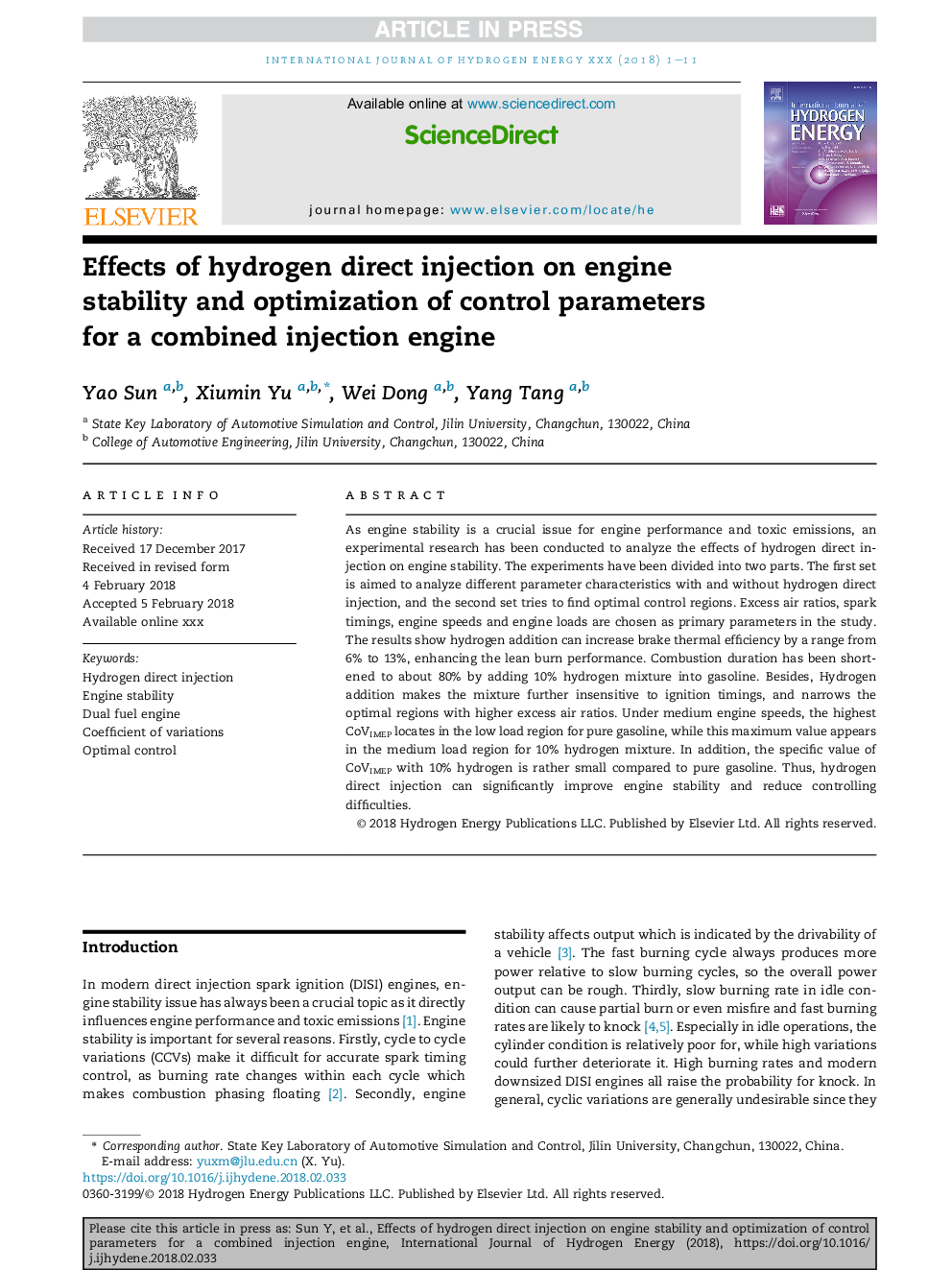| Article ID | Journal | Published Year | Pages | File Type |
|---|---|---|---|---|
| 7706932 | International Journal of Hydrogen Energy | 2018 | 11 Pages |
Abstract
As engine stability is a crucial issue for engine performance and toxic emissions, an experimental research has been conducted to analyze the effects of hydrogen direct injection on engine stability. The experiments have been divided into two parts. The first set is aimed to analyze different parameter characteristics with and without hydrogen direct injection, and the second set tries to find optimal control regions. Excess air ratios, spark timings, engine speeds and engine loads are chosen as primary parameters in the study. The results show hydrogen addition can increase brake thermal efficiency by a range from 6% to 13%, enhancing the lean burn performance. Combustion duration has been shortened to about 80% by adding 10% hydrogen mixture into gasoline. Besides, Hydrogen addition makes the mixture further insensitive to ignition timings, and narrows the optimal regions with higher excess air ratios. Under medium engine speeds, the highest CoVIMEP locates in the low load region for pure gasoline, while this maximum value appears in the medium load region for 10% hydrogen mixture. In addition, the specific value of CoVIMEP with 10% hydrogen is rather small compared to pure gasoline. Thus, hydrogen direct injection can significantly improve engine stability and reduce controlling difficulties.
Related Topics
Physical Sciences and Engineering
Chemistry
Electrochemistry
Authors
Yao Sun, Xiumin Yu, Wei Dong, Yang Tang,
